The Living Pins | Interview | Exclusive premiere of ‘Raven’
The Living Pins are an electric psych rock outfit from East Austin formed in 1996. ‘Freaky Little Monster Children’ — a new fledgling baby bird EP of glam-psych-guitar explosions was just released on April 9, 2021. Primordial 1990s Austin, meets 2000s oversaturated festival hangover, meets 2020 lockdown mind melt champagne fountain.
Carrie Clark of Sixteen Deluxe and Pam Peltz of Ursa Major formed the duo in 1996. This is the first video from the ‘Freaky Little Monster Children’ EP, now available on Bandcamp.
Chess may have some well-known rules, but the tiny creatures in the mailbox of your mind leave their cocktails on the porch and their worries behind. If backed into a corner, video director Pam Peltz, will admit that she was influenced by Ingmar Bergman’s ‘The Seventh Seal’.
What’s the story behind The Living Pins?
Pam Peltz: The Living Pins were born at Wheatsville Food Coop in Austin, Texas, sometime in the mid-90s. Wheatsville was (and still is) a natural foods grocery store. And for cosmic reasons yet unrevealed to us, it was an employment magnet for a bunch of indie Austin musicians in the 80s and 90s. We all needed day jobs because almost nobody made their living making music in Austin. But we also really liked hanging out with each other and it was a great way to meet other players and start bands. The roster of bands that had at least two members who worked at Wheatsville is pretty astounding–Ed Hall, ST 37, Sixteen Deluxe, Cotton Mather, Cherubs, etc.–a seriously long list.
Carrie Clark: Pam and I probably had our first conversation somewhere around the Doors of Forgetfulness at Wheatsville. Those were the double metal doors that led from the sales floor to the backstock area. You would be out in the store. Possibly you’d have a question from a customer. You’d walk back through the Doors of Forgetfulness and you’d just stop dead in your tracks because you suddenly had no idea why you walked back there.
Pam Peltz: Yeah, and the cassette deck to change the music was back by the Doors too, so there was a lot of foot traffic in that area.
Carrie Clark: And there was definitely competition for what music to play in the store because you had to listen to it while you were working. Everyone had strong opinions about that, as you can imagine. So much Velvet Underground got played.
Pam Peltz: Those were good times. The closing crew would get the store shut down by 11pm and some, maybe all of them, would head out to a show. And when you got to the show, maybe some of the people on stage worked at Wheatsville or maybe Whole Foods–the original location over at 10th and Lamar. And while you were out that night, maybe you saw your friends who were going to have to open Wheatsville in the morning, and you kind of pointed at them and laughed and said, “I’m glad that’s not me.”
Carrie Clark: Do you remember, did The Living Pins actually start because of the name?
Pam Peltz: I do remember telling you about a dream I had one night. The dream involved me sitting on a couch backstage at Liberty Lunch (Austin nightclub, now deceased). Wayne Coyne from The Flaming Lips sat down and told me about a really cool band name he had thought of, The Living Pins. And then I woke up. I remember telling you about this dream and you said, “That’s it. That’s the band name.” The funny thing is that I had never met Wayne Coyne and I still haven’t met him.
Carrie Clark: Really? Wayne Coyne and I were label mates on Warner Bros. I got to see his goofy ass all the time.
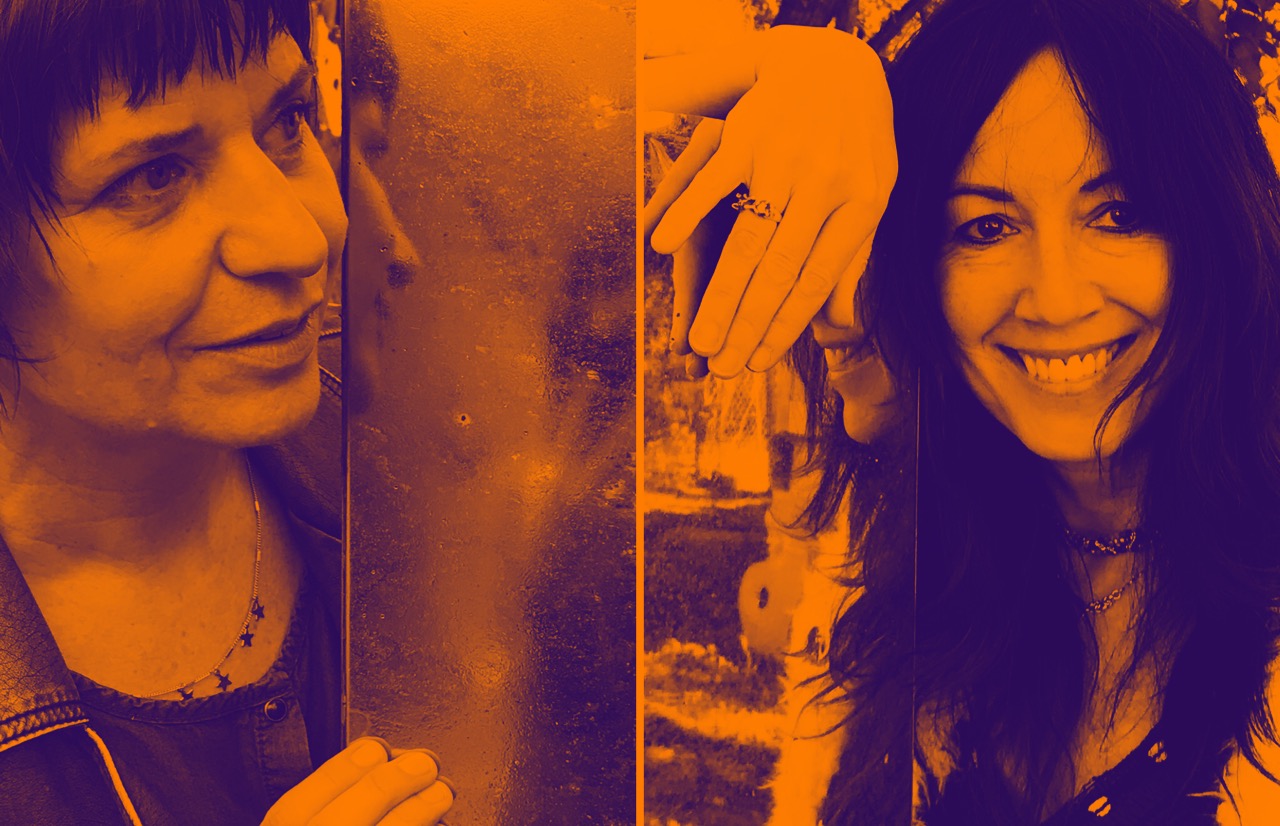
Carrie, where would you place The Living Pins in comparison to your other bands like Sixteen Deluxe, who were on both the Warner Bros and Trance Syndicate labels?
Carrie Clark: I can’t imagine using an empty milk jug as a pee bottle in The Living Pins’ tour van. But then again, The Living Pins haven’t been out on tour yet. Reflecting back, I had a lot of fun out on the road with Sixteen Deluxe. Between 1995 and 2000 we toured pretty consistently. I got to play shows with a lot of my heroes like The Jesus and Mary Chain, Luna, and Mercury Rev. It’s funny, I was the only girl that I can recall being part of the JAMC [The Jesus and Mary Chain] tour. I remember listening to them as a teenager in my bedroom back in Manhattan, Kansas and then I somehow found myself hanging out backstage with Jim and William Reid at the 9:30 (club) in Washington, D.C. ten years later. That evening, William decided to give me the nickname of Lady Madonna. It took me a long time to realize that’s a high compliment coming from a Scotsman. And having all these experiences in common with Sixteen Deluxe’s bass player, Jeff Copas, was one of the reasons why I wanted to work with him as a producer on this project. Plus, he’s another Wheatsville alumnus, so it all made sense.
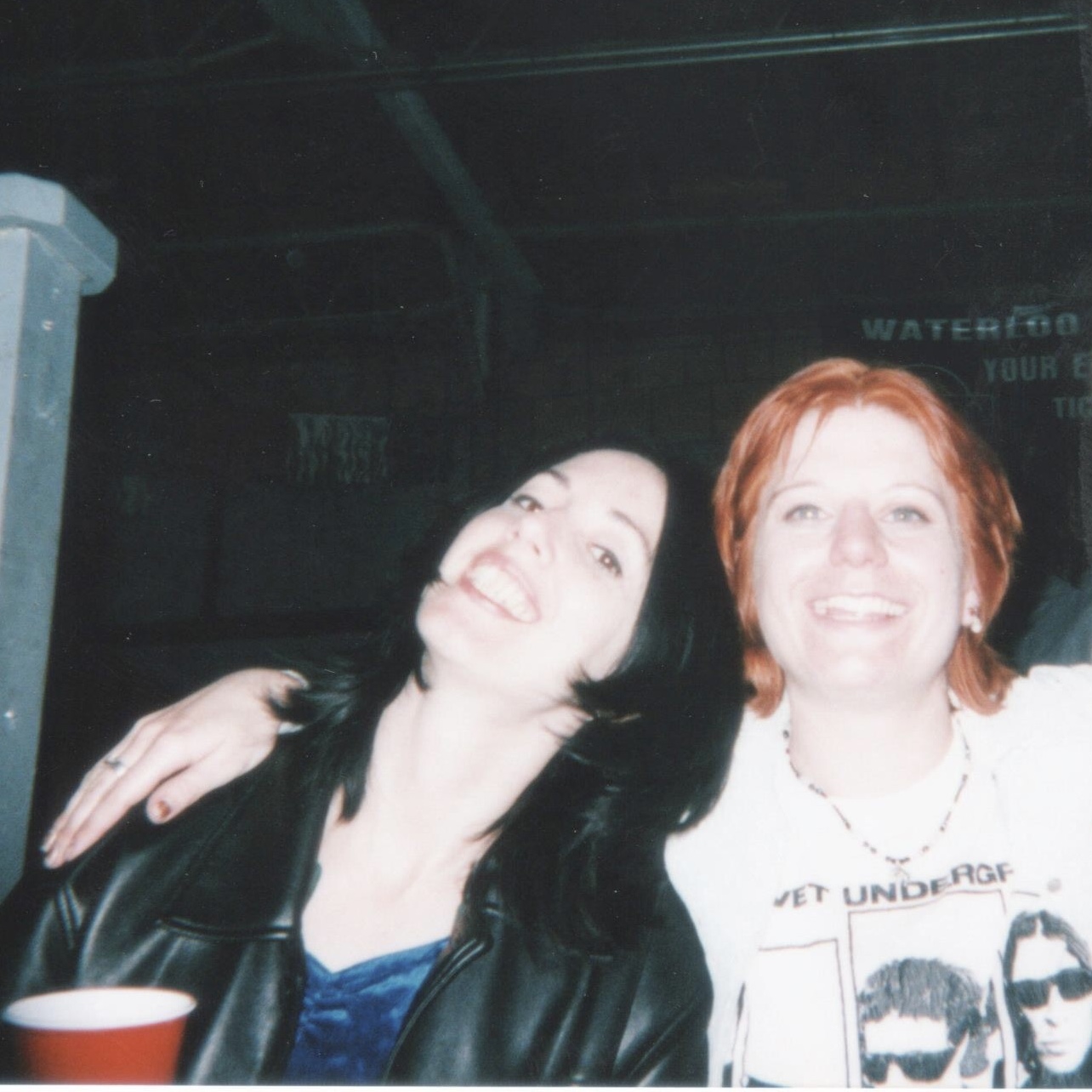
Pam, you worked with Daniel Johnston. How did that come about and what are some of the recollections for producing his music?
Pam Peltz: That was back in the fall of ‘85. I had no idea I was producing album tracks at the time we recorded them. Either Bill Anderson (Poison 13, Joan of Arkansas, etc.) or Dave Woody (The Texas Instruments), both old friends of mine even at that time, called me on the phone and asked if they could come by my house with Daniel and record. I was literally one of the first kids in the neighborhood who owned a Tascam Porta One (4-track cassette recorder). The three of them showed up at my back door about a half hour later. I didn’t really know Daniel personally, other than having seen him open up for bands at The Beach and The Continental Club. He would just get up and stand in front of the stage, maybe even without a microphone, if I remember correctly, and do a few songs before an amplified band. His songs and his delivery were amazing, like psychic gut punches. Plus, they were usually funny as hell. Daniel really knew what he wanted from a song and from a recording. Not necessarily in the “can I have more mid-range on the whatever?” kind of way, but he would just direct people to do things almost like he was directing a childrens’ play out in the backyard. Kind of bossy in a sweet way, but so confident, like he already heard the part in his head the moment he pointed at you. He recruited my housemate Randy Ross to sing back-up vocals on ‘George Jones’ by sheer virtue of him being present in the room at the time. Me too, that’s why I’m sing-speaking on that song. We had a great time that night. It seemed like we were playing parlor games and we didn’t take it very seriously. I think Daniel left with a cassette dub of both songs and I put the master tape in a box or a drawer somewhere. A few months later, Daniel’s manager, Jeff Tartakov, called me out of the blue to ask if the tracks could go on an album. So, ‘Casper’ and ‘Ain’t No Woman Gonna Make a George Jones Out of Me’ ended up on Daniel’s album, ‘Continued Story’.
“Expect the unexpected”
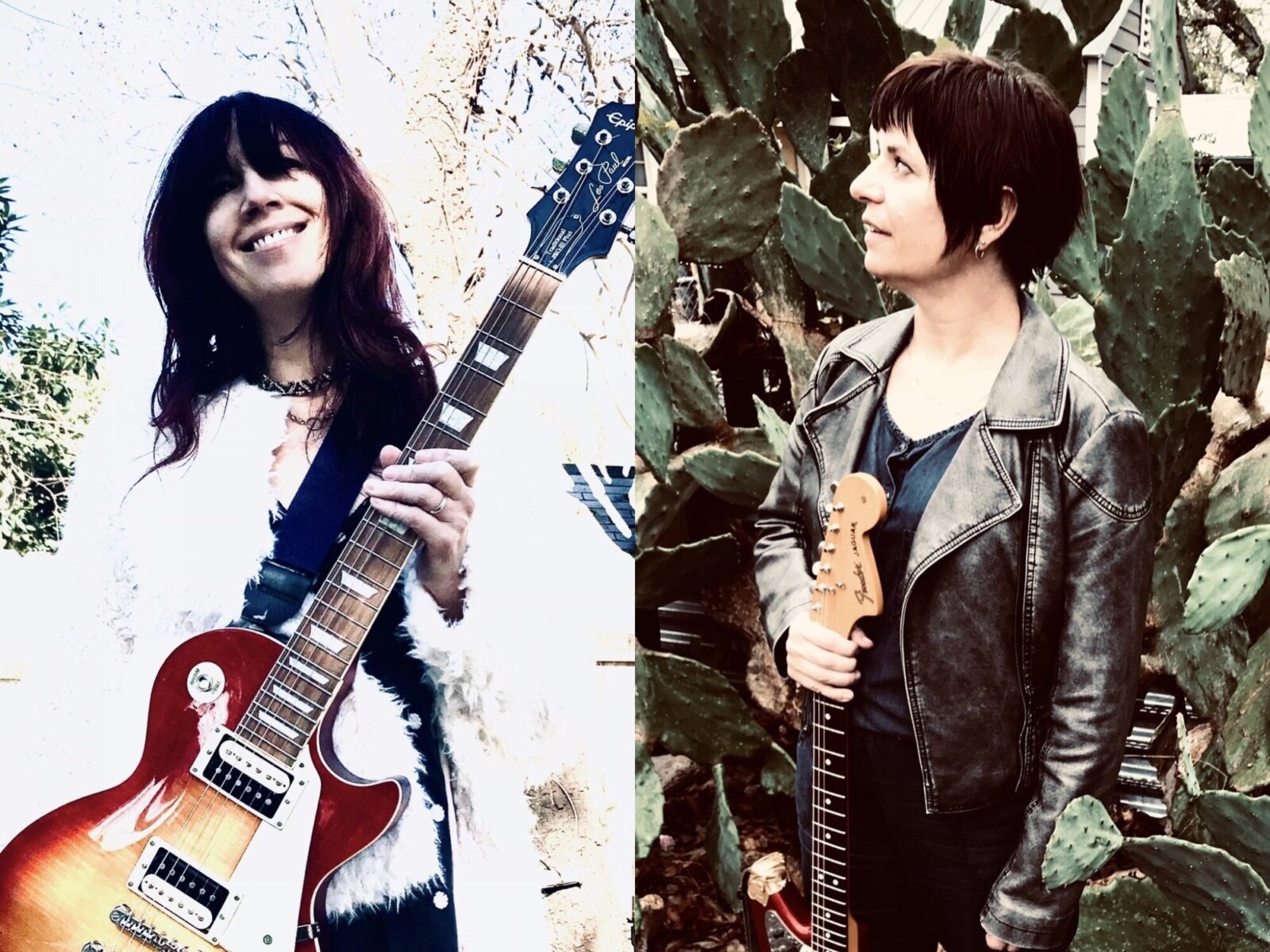
Nobody is certain what will happen with the music industry. What are your predictions and how are you dealing with this situation?
Carrie Clark: Ahh, what will happen with the music industry? … It will never go away. It just keeps shape shifting. And the music, the music’s not going away either. It’s the rock. It will always be there. It shape shifts even less than the industry.
Pam Peltz: We just keep our map handy. It’s really hard to predict where you’re going to end up. So just be prepared for anything. Expect the unexpected. Also, if music is truthful–and I don’t mean anything superficially ethical by that statement, I just mean that if people connect with it on a groove level or on some level of verbal poignancy–then it’s only your “job” as the musician to be in the right place at the right time, which is actually the most difficult contortion to pull off.
Now let’s talk about the ‘Freaky Little Monster Children’ EP. Can you share some further details about how it was recorded?
Carrie Clark: We actually intended to record just the two of us and Brian the Drum Machine even before the pandemic hit. We were talking with Jeff Copas (our producer) about it at our last show at the Knomad Bar before the lockdown happened. And then everything just came to a screeching halt music wise. Then a few months later we realized that we could actually still record since there were only the three of us, only three humans involved.
Pam Peltz: We ended up recording in the unused lobby at Splinter Group, an artists’ collective in East Austin. It’s a group warehouse space for craftspeople–woodworkers, metalworkers, ceramicists, and others. And aside from the industrial part of the space, there’s actually a smaller lobby space that doesn’t get used for much. Splinter Group was cool enough to let us set up in the lobby late on Friday and Saturday nights. Most of the Splinter occupants were not working during those hours, but we still kind of had our fingers crossed that no one would show up to work and turn on the band saw, for example, while we were recording vocals.
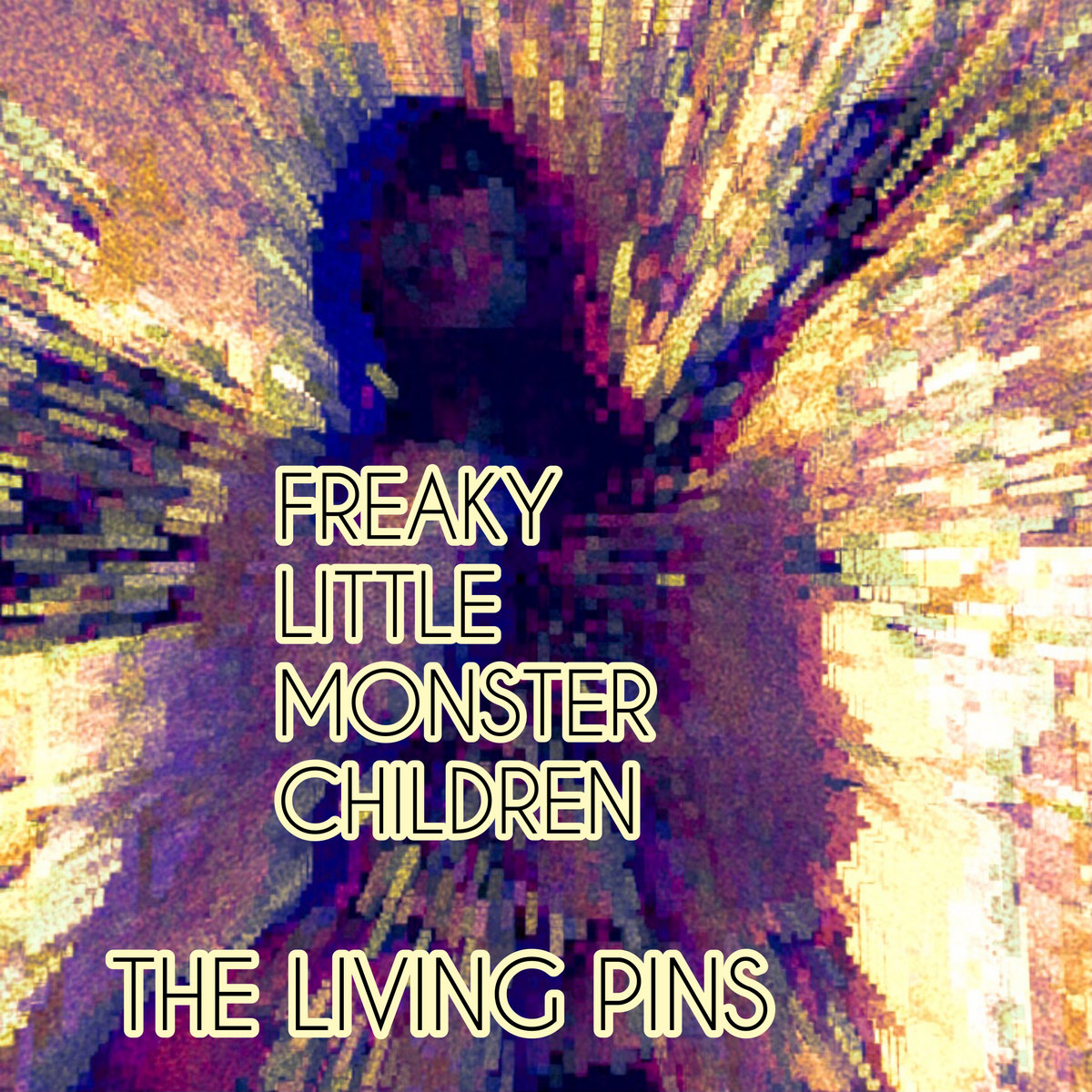
Carrie Clark: We recorded for two weekends, basic tracks and overdubs. After that, Jeff would mix the tracks at his house and share them with us remotely. So most of the decisions got made when the three of us were not in the same room.
Pam Peltz: I would just roam around my house and play the mixes on every conceivable device I could find. The Klipsch speakers out in my living room. A tiny little Bluetooth speaker that I use in one of the back rooms. Or my laptop or my phone.
Do you think there’s a certain concept behind it?
Pam Peltz: Not to start with. I mean, I love concept albums like ‘Tommy’ or ‘Sgt. Pepper’s’, but we didn’t approach it with that quasi-literary point of view. We did know that ‘Raven’ was going to be on the EP. Then we just picked three other songs that had the good thing going on, the mojo working.
Carrie Clark: And when you put four different things together in the same room, in this case four different songs, they will immediately have a relationship with each other whether you intended it or not. And since we were recording them all at the same time, I think we were intuitively aware that they should balance each other out somehow.
Pam Peltz: It’s like the video for ‘Raven’. When I was making it, I didn’t sit down and write a little scenario that involved a cat, a bear, a pig, and a horse head. I just randomly looked around my house for four animal figures that were of relatively the same scale. And then I set the four figures in motion and I paid close attention to what they happened to look good doing. And that informed everything else–the story, the vibe of the video. The four songs on the EP are that way too. They all work together because they were sharing that space and time with us. Plus, Carrie and I were paying close attention to how they might sound good together.

How would you describe your sound?
Carrie Clark: We’re focused on writing good songs, songs that sound like they’re already out there and that you just haven’t heard them yet. So our sound is really tied in with the process of writing songs.
Pam Peltz: For the EP songs, it usually started with me going for a dive under the riff rock and I would bring some creepy crawlies back with me. I’d show them to Carrie, and Carrie is like the lab technician. She should have a white lab coat and a bright blinding light strapped to her forehead like a third eye. She’s very gentle and patient and she builds these sound cocoons around the creepy crawlies that I bring–it’s like she knits little sweaters for them. And then those little sweaters will trigger some reaction spark in me to go back and refine something. I’ll trim, or rearrange, or construct a better rhyme—whatever it takes.
Carrie Clark: Then, at some point in this back and forth process, when a song sounds like something that we’ve both heard in the back of our heads, or in a dream, or coming out of an imaginary dashboard—then we know the song is cooked.
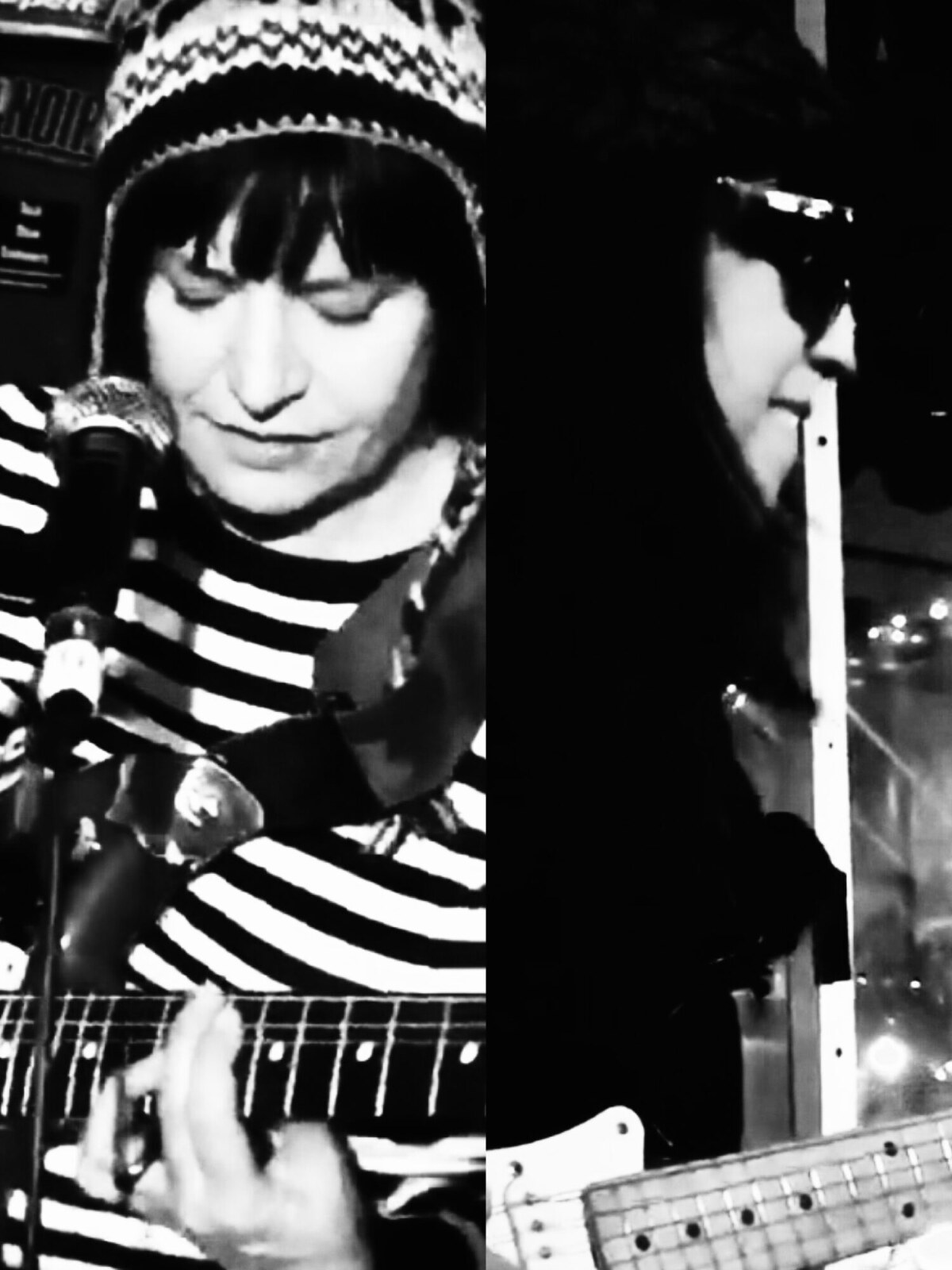
Let’s end this interview with some of your favourite albums. Have you found something new lately you would like to recommend to our readers?
Pam Peltz: Here are three random favorites, ‘Entertainment’ by Gang of Four, ‘The Piper at the Gates of Dawn’ by Pink Floyd, and anything by Booker T. & the M.G.’s. My favorite current band is Sleaford Mods.
Carrie Clark: ‘Yerself Is Steam’ by Mercury Rev, ‘Loveless’ by My Bloody Valentine, and anything by The Velvet Underground. My favorite way to learn about new music is to go to live shows. With SXSW being cancelled for the last 2 years, I found myself really missing the opportunity to stumble onto a new band at a day party at 3:00 on a Tuesday afternoon. Or in the basement of an office building at 4:00 in the morning.
Thank you. Last word is yours.
Carrie Clark: Coffee.
The Living Pins Official Website / Facebook / Instagram / Twitter / Bandcamp / YouTube

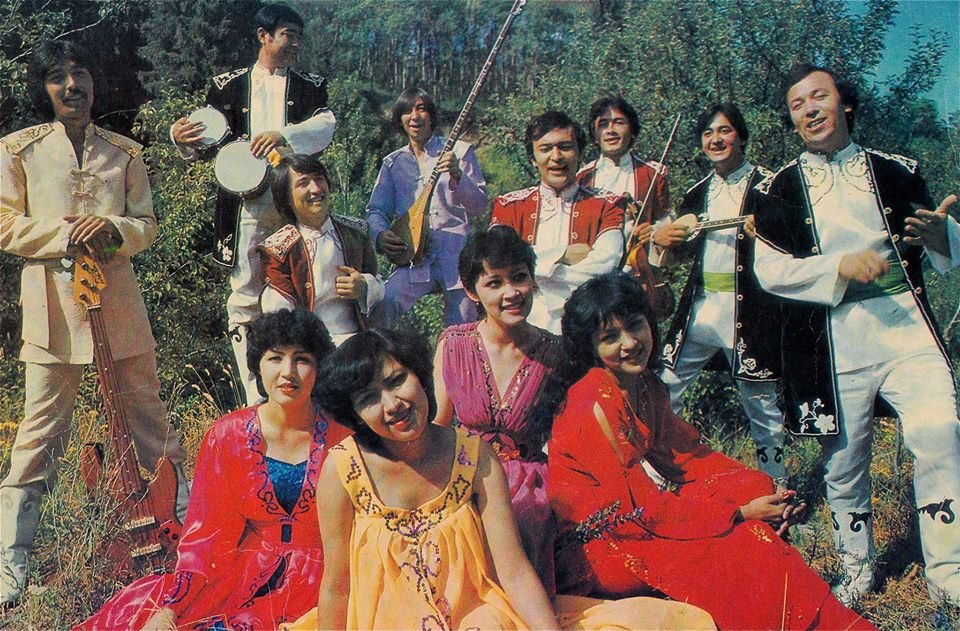
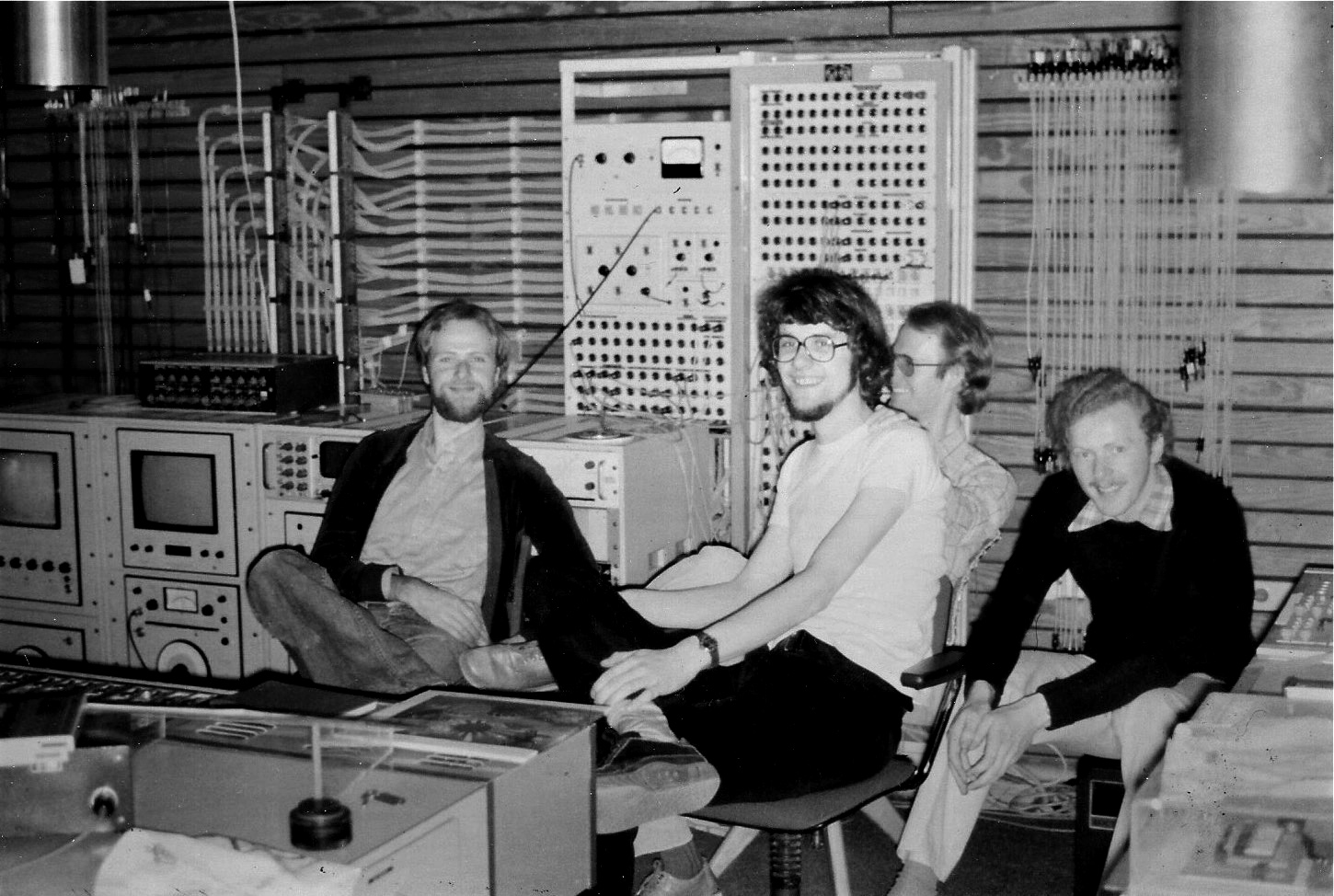
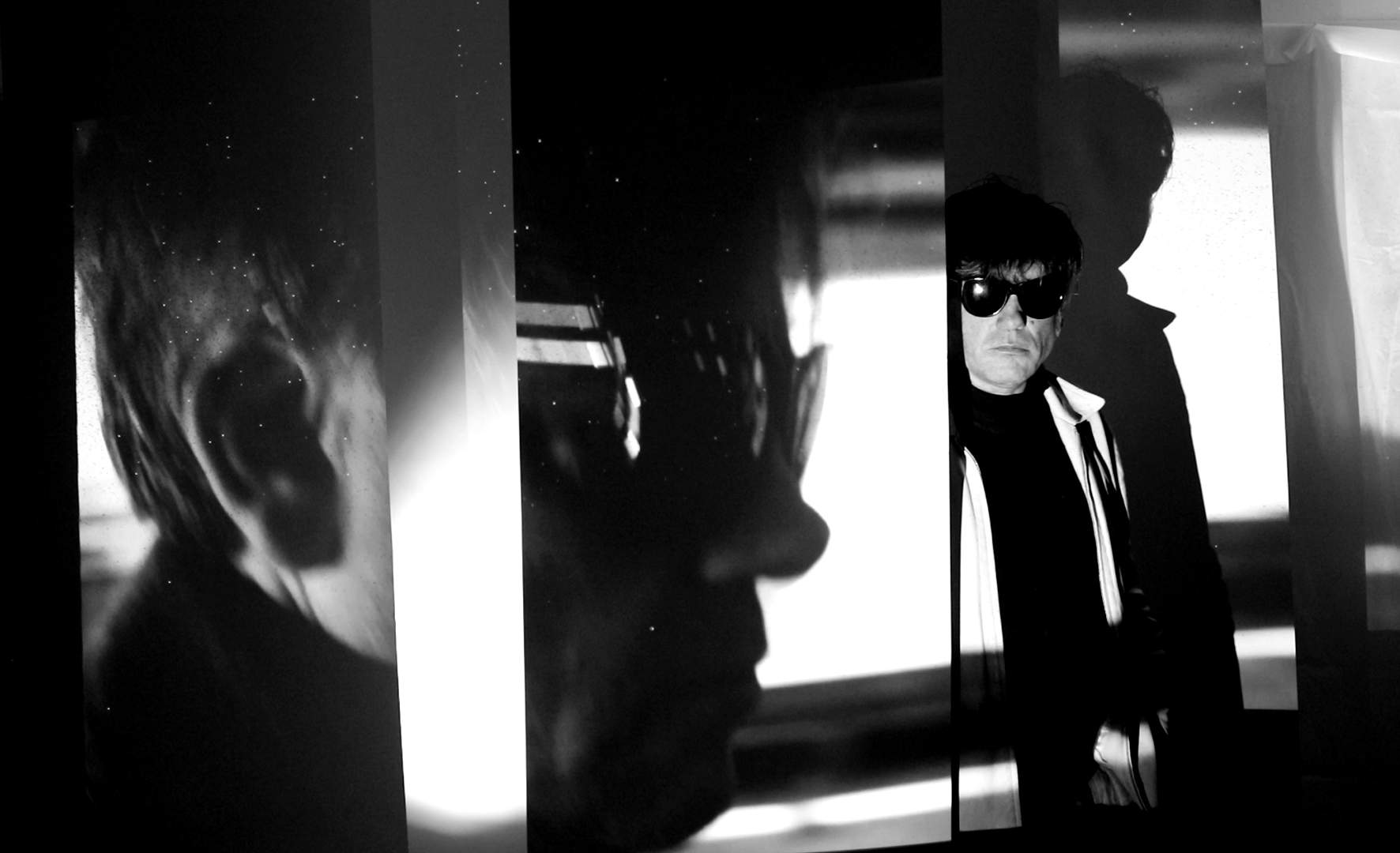
I worked at Wheatsville Co-op in the 80’s. It was brilliant. So much talent and fun. The Living Pins are an organic outgrowth of that tiny, energetic, non-capitalist scene. Keeping the torch burning! And one of the best EP’s I’ve ever heard!